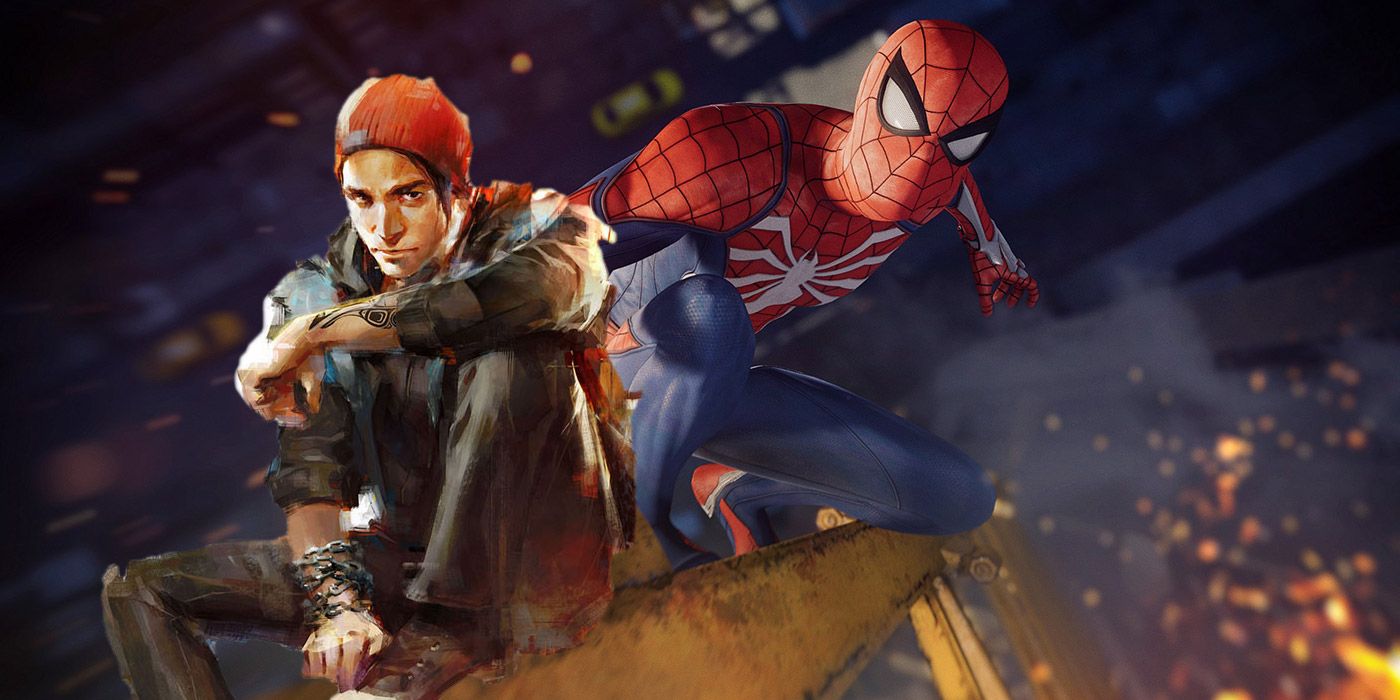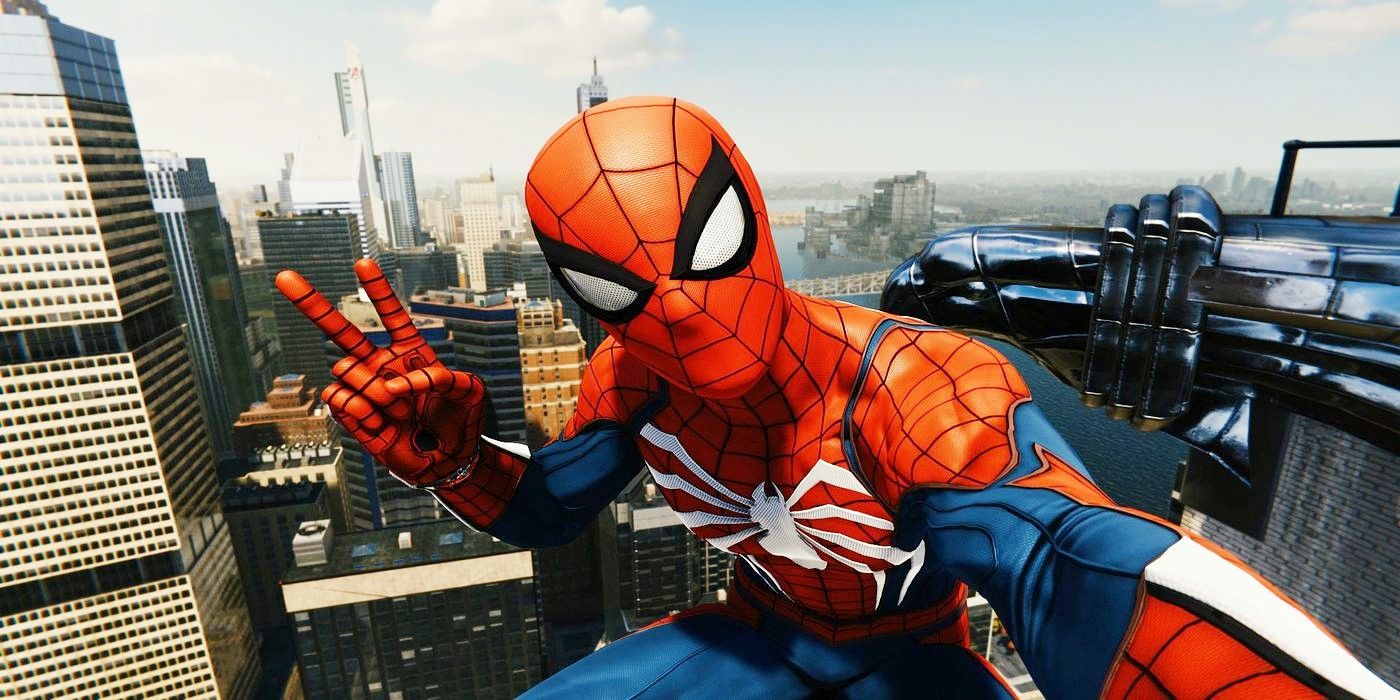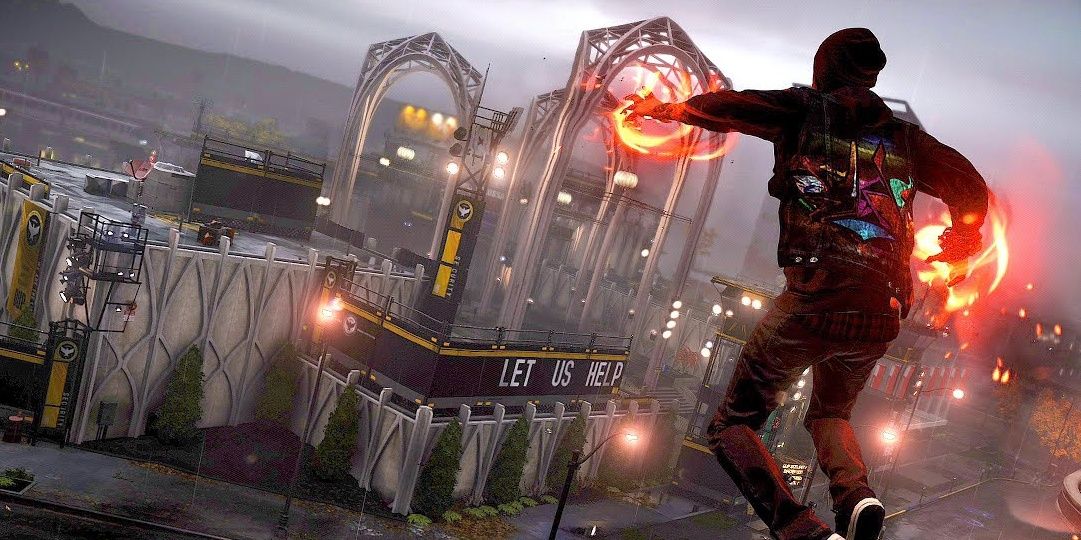
Superhero games can be difficult to get right, as demonstrated by recent examples like Marvel's Avengers. While there are shining examples of top-tier design and world-building in the superhero genre, the Batman Arkham games being a shining example, no two games establish what it means to be a superb superhero game quite like Spider-Man and Infamous Second Son do.
That's not to say that other superhero games are atrocious or that the exact formula presented in Infamous and Spider-Man needs to be replicated without fail. However, there are key aspects of both that should set the bar for how these games operate. Plus, the leap from Infamous to Spider-Man shows how the genre evolved between the beginning and end of the console generation, with some key differences between the two.
RELATED: Why a Superman Game is Difficult to Pull Off

Both Insomniac and Sucker Punch have had their fair share of hits, releasing multiple titles throughout the PS4 console generation. Sucker Punch kicked things off with the launch of Infamous, followed-up by Ghost of Tsushima just last year. Meanwhile, Insomniac Games debuted the remake of Ratchet and Clank in 2016, with Spider-Man launching back in 2018.
All told, the two developers have made massive contributions to PlayStation's roster of exclusive games, but on a more granular level, Insomniac Games and Sucker Punch helped carve out a more refined version of the superhero games that fans know and love. That, of course, isn't easy, and they didn't reach this point on their own. There's been a steady build-up of superhero games improving over time for as long as there have been video games. For Infamous and Spider-Man, though, the studios have found how important it is to balance superhero abilities with fleshed-out characters.

The biggest advantage that Spider-Man and Infamous Second Son have over their competitors is a top-shelf protagonist voiced by industry veterans. With Troy Baker picking up the role of Delsin Rowe and Yuri Lowenthal portraying Peter Parker, fans of both games would be hard-pressed to find better actors for either role. Both Baker and Lowenthal bring a lot to the table, and that pays off with believable delivery for each line.
One can criticize the binary morality system in Infamous Second Son, as there's no real reason for Delsin to be evil, but the writing in both games take things a step further. The games take time to explore the personal relationships of both heroes; Delsin with his brother and Spider-Man with MJ, Miles Morales, and Aunt May. It's a detail that reminds players that the protagonist has a life outside of just being a hero, and that raises the stakes in a compelling way.

Of course, it wouldn't be a superhero game without superpowers, and it's another area where both games shine. Moment to moment, players get to dash around rapidly and fire off their powers with few restrictions. There's a sense of grace to these abilities, with both games emphasizing melee combat and Infamous incorporating a suite of ranged attacks for players to use against their enemies.
This fluidity is what makes Delsin and Spidey feel so super. While other superhero games offer something of a floaty combat system, the Batman Arkham games being the best example, Spider-Man and Infamous offer up a system that feels far more agile than the other stuff that's out there. That's a great thing, as it makes combat feel a lot more dynamic, and by extension, more in line with what one would expect to find in a superhero movie. That feeling is especially prominent during boss battles, where beefy enemies exchange blows with the player.
RELATED: Suicide Squad: Kill the Justice League Has the Potential to Ironically Be the Best Superman Game Yet

One of the central aspects of both Spider-Man and Infamous is the city they take place in. Spider-Man's take on New York is a more accurate representation of the real-world place than Infamous' portrayal of Seattle is, but both invested time in making the game space feel as close to the real thing as was feasible at the time. This has a great payoff, as both manage to feel as much like a character as some of the people that appear in the game.
New York's adoration of Spider-Man comes across with every swing, as players move about the world with passers-by cheering them on. Plus, it's also possible to drop to the streets and interact with fans, which is a nice touch. Spider-Man also makes a point of highlighting real-world locations that have been recreated in the game through photography challenges. That feels cheesy at first, as it is something of a typical video game objective, but it gives players a better frame-of-reference for landmarks to take in as they work their way through the game.
Infamous Second Son's Seattle is the same in a few regards, though it feels much more dystopian than Spider-Man does, and that works well considering what the game is going for. Delsin's morality system doesn't change things an outrageous amount, but it can affect how Delsin interacts with the world, ultimately deciding if he's a hero or villain. Not to mention, it was one of the first truly gorgeous exclusives on the PlayStation 4, leaving a major impact in the hearts of many gamers.
All of these elements combine to create truly compelling superhero experiences, ones that other games in the genre would do well to take notes from. That doesn't mean that every superhero game needs to be a copy-pasted product, but they should at least serve as examples of what should be emphasized.
Luckily for fans of Spider-Man, at least, it's implied there will be more games on the horizon. Infamous is a bit more of a question mark, as Sucker Punch's work on Ghost of Tsushima seems to have been better received by fans than Second Son was – or, at the very least, Ghost of Tsushima is just fresher in their minds. Infamous still has a dedicated fan base behind it, so there are certainly those that would like to see a new one, now that seven years have passed.
Infamous Second Son and Spider-Man are both available now on PS4.

